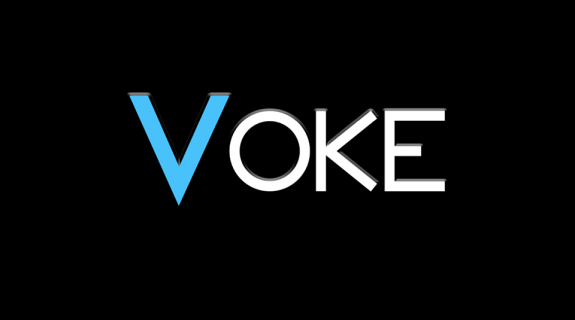Disruptive technology companies bloom from every corner of the globe these days, including the unlikely town of Pullman, Washington, a small berg nestled amidst fertile hills near the state’s eastern border. It’s a mostly rural area where the most well-known landmark is probably Washington State University, an agriculturally-minded college were two technology-minded faculty members are changing the way we experience live entertainment.
Uma Jayaram, Ph.D. and Sankar Jayaram, Ph.D. are a husband-and-wife duo of professors who have headed up WSU’s Virtual Reality and Computer Integrated Manufacturing Laboratory since they founded it in 1994. There are probably only a handful of people on the planet who know more about the field of virtual reality than this married couple, and they have chosen, through their company Voke VR, to apply their vast expertise toward innovation in sports and concert events.
An avid Seattle Seahawks fan, Sankar Jayaram came up with the idea for Voke one frustrating afternoon when he was missing one of the team’s contests on their home turf.
“I thought it would be cool to use VR to feel like you are sitting in the stadium and viewing the game,” he told Brief, “and that’s where this whole thing started.”
Originally called 3D-4U, Voke is now based in Silicon Valley, where it has already achieved Sankar’s vision of bringing, via real-time VR technology, a game to fans who are outside the game’s arena. On October 28, Voke collaborated with the NBA’s Sacramento Kings to broadcast the team’s home opener against the Los Angeles Clippers to students at Dhirubai Ambani International School in Mumbai, India and children hospitalized at the Kaiser Permanente Women and Children’s Center in Roseville, California. The recipients of the live broadcast used both Facebook’s Oculus Rift head-mounted displays and ordinary tablets to view the game from courtside. Demonstrating their faith in VR technology to open new global pathways of awareness and viewership, the Kings have taken an equity stake in Voke.

But while Voke has helped make watching live telecasts such as the Kings game via VR a reality, we probably won’t be having a similar experience in our living rooms for a while.
“There is so much more to this whole VR experience than just putting on a headset, being able to look around and say, ‘Whoopie I can see in 180 or 360 degrees,” says Uma. Working with clients such as the NFL’s Jacksonville Jaguars and WSU’s Pac-12 football team, the primary thrust of Voke’s work has involved enhancing games for fans who actually come to the stadium. Not only is the company’s real-time feed platform-agnostic, meaning it plays just as well on a smart phone or tablet as it does on a VR headset, it can be manipulated by the user, offering a level of video access and control that goes far beyond turning your head to watch what’s on the Jumbotron from your seat.
The aim, Uma said, is to let the user “Produce their own experience” on their device of choice, cutting between angles and viewpoints as a broadcaster would. While “the immersion [on mobile devices] is not, ‘okay, you’re immersed into it and there’s nothing else you can see,’” as it would be via a VR headset, “the user control is there,” she continued, “so you can pan, zoom, look around, rewind, see something else. And once you see that experience, it’s really powerful.”
For proof of Voke’s power, one need look no further than the Jaguars, with whom the company has partnered on the team’s official game day app to create an option for fans at the stadium to not only view instant replays, but to do so mere seconds after the given play has finished, and from different angles in and around the stadium.
“This is a huge technological breakthrough in terms of what it provides to the end user,” Uma said. “It’s not some kind of producer who says, ‘OK I think the action is good over here now,’ and so everyone has to watch from that part. No, we allow people the freedom to have this personalized viewing and pick whichever location they want, and go back and forth.”

Our current sports-viewing paradigm, Uma continued, involves “some very talented people who decide, ‘Hey, this is what my fans are going to like,’” and proceed to dictate to those fans every second of what ensues. Voke is poised to disrupt that paradigm.
While it’s bread and butter currently involves experiential control at live events (the company also does concerts, including a partnership with Ricky Martin), executions such as the Sacramento Kings telecast show how that same, live, controllable feed might extend to living-rooms TVs as well. Imagine watching Sankar’s beloved Seahawks and choosing to focus on nothing but coach Pete Carroll on the sidelines for 10 minutes because he’s so excitable and makes such funny faces. Or camping out behind the goal posts just as the home team is kicking the game-winning field goal. Voke VR is pushing toward a time when both maneuvers are possible, and many more as well.
“I think with all disruptive technologies, the biggest challenge is the status quo,” said Uma, “because people are comfortable viewing things a certain way, and there’s always that existential question of, ‘OK, why do I really need something different?’ That becomes your biggest challenge, and that’s what drives you.”
Tags:













































__twocolumncontent.jpg)











